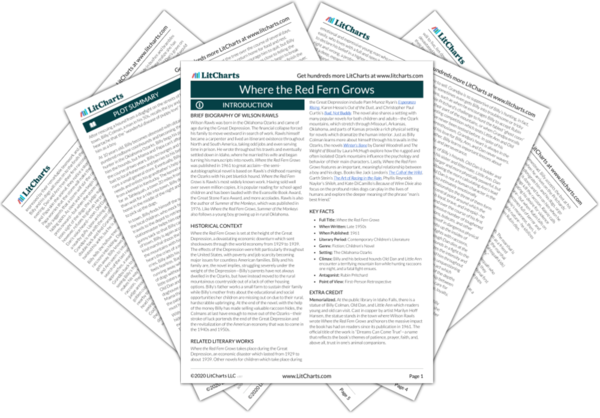This passage shows how deeply Billy’s parents love him. They want to provide for him and help him have a happy childhood, even if they can’t get him exactly what he wants. Though this incident with Samie is relatively lighthearted, it’s also an important teaching moment for Billy about the consequences of hunting animals. As Billy begins exploring the natural world and his love of hunting more and more—with his parents’ help—he learns about the violence inherent within the pursuit he so loves, and how that violence comes to affect the relationships between animals and people.


